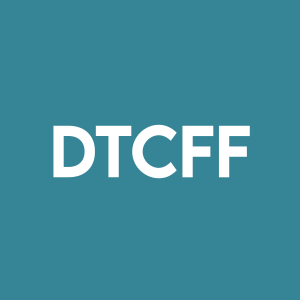Defence Therapeutics Granted CNRI-H from the Canadian Nuclear Laboratories to Accelerate the Development of Its Radio-Immuno-Conjugates Program
Rhea-AI Summary
Defence Therapeutics Inc. (CSE: DTC) (OTCQB: DTCFF) has been approved for the Canadian Nuclear Research Initiative Health (CNRI-H) Program by Canadian Nuclear Laboratories (CNL). This collaboration aims to accelerate Defence's radio-immuno-conjugates project, focusing on novel 111In-AccuTOX®-Trastuzumab constructs.
The project's objectives include:
- Synthesizing and evaluating constructs to demonstrate AccuTOX®'s role in evading endosome entrapment
- Ensuring nuclear localization for 111In to emit Auger Electrons
- Developing constructs lethal to HER2-positive cancer cells
- Identifying a potent 111In-AccuTOX®-Trastuzumab molecule for treating solid tumors resistant to current HER2-targeting therapies
The global radiopharmaceuticals market is projected to reach $21.8 billion by 2033, with a CAGR of 10.6% from 2024 to 2033.
Positive
- Approval for CNRI-H Program, providing financial support and expertise from Canadian Nuclear Laboratories
- Potential development of more effective treatments for HER2-positive cancers resistant to current therapies
- Collaboration with CNL may accelerate Defence's progress in the growing radiopharmaceuticals field
- Targeting a rapidly expanding market: global radiopharmaceuticals market projected to reach $21.8 billion by 2033
Negative
- None.
News Market Reaction 1 Alert
On the day this news was published, DTCFF declined NaN%, reflecting a moderate negative market reaction.
Data tracked by StockTitan Argus on the day of publication.
Vancouver, British Columbia--(Newsfile Corp. - July 24, 2024) - Defence Therapeutics Inc. (CSE: DTC) (OTCQB: DTCFF) (FSE: DTC) ("Defence" or the "Company"), a Canadian biopharmaceutical company developing novel immune-oncology vaccines and drug delivery technologies, is pleased to announce that its Canadian Nuclear Research Initiative Health ("CNRI-H") Program application was retained and approved by the Canadian Nuclear Laboratories ("CNL") to accelerate Defence's radio-immuno-conjugates project.
Defence's CNRI-H project will focus on the synthesis and evaluation of novel constructs, variations of 111In-AccuTOX®-Trastuzumab. The objective is to demonstrate that AccuTOX® moiety is an essential modification to conventional 111In-Trastuzumab constructs to evade an endosome entrapment and ensure nuclear localization, where 111In will emit Auger Electrons ("AEs") to kill cancer cells, and providing a synergistic effect by unleashing AccuTOX® immune-boosting power. It is expected that these constructs will be lethal to HER2-positive cancer cells specifically and will produce high potency.
Selected AccuTOX® constructs, based on stability, solubility, and biochemical properties, will be conjugated to the trastuzumab antibody, followed by radiolabeled with 111In, and then characterized, in vitro and in vivo, for its efficacy in killing cancer. The main goal is to identify the biologically active 111In-AccuTOX®-Trastuzumab molecule that will be more potent to treat solid tumor resistant to current HER2-targeting therapy such as therapeutic antibodies (e.g., trastuzumab alone) and antibody-drug conjugate (e.g., Kadcyla®).
In summary, the aim of this CNRI-H collaborative project is:
1. To synthesize AccuTOX®-Trastuzumab antibody conjugates, radiolabel with 111In, and characterize, including structure and cellular analysis (e.g. identification, drug-antibody ratio, specific activity), stability, and cytotoxic effects, in vitro.
2. To perform animal studies in rodents, in vivo, namely biodistribution, pharmacokinetic profile, and therapeutic potency, using selected 111In-AccuTOX®-Trastuzumab constructs.
"We are proud to have this opportunity to collaborate with the Canadian Nuclear Laboratories and to advancing Defence's radio-immuno-conjugates program for the benefit of the cancer's patients. The CNL scientific team dedicated to our project is very strong and will definitely accelerate and reinforce Defence's strength in this renowned and fast-growing radiopharmaceuticals field," said Sebastien Plouffe, Chief Executive Officer of Defence Therapeutics.
CNRI-H is a program developed by CNL to further the realization of its mission of contributing to the health of Canadians. Through CNRI-H, CNL provides financial support along with its expertise, experience, capabilities and makes this available and accessible to the healthcare community to advance new life saving radiopharmaceutical solutions. CNRI-H is a turnkey solution that integrates both funding and project execution in one award. The goal of the program is to accelerate the optimization of therapeutic isotopes production and the clinical translation of targeted radiopharmaceuticals for the benefit of Canadians whilst increasing the safety and efficacy of therapies that involve radiopharmaceuticals.
According to Allied Market Research, the global radiopharmaceuticals market was valued at
https://www.alliedmarketresearch.com/radiopharmaceuticals-market-A14458
https://straitsresearch.com/report/radioligand-therapy-market
About Defence:
Defence Therapeutics is a publicly-traded clinical-stage biotechnology company working on engineering the next generation vaccines and ADC products using its proprietary platform. The core of Defence Therapeutics platform is the ACCUM® technology, which enables precision delivery of vaccine antigens or ADCs inside target cells and favoring their processing and activities. As a result, increased efficacy and potency can be reached against catastrophic illness such as cancer and infectious diseases.
For further information:
Sebastien Plouffe, President, CEO and Director
P: (514) 947-2272
Splouffe@defencetherapeutics.com
www.defencetherapeutics.com
Cautionary Statement Regarding "Forward-Looking" Information
This release includes certain statements that may be deemed "forward-looking statements". All statements in this release, other than statements of historical facts, that address events or developments that the Company expects to occur, are forward-looking statements. Forward-looking statements are statements that are not historical facts and are generally, but not always, identified by the words "expects", "plans", "anticipates", "believes", "intends", "estimates", "projects", "potential" and similar expressions, or that events or conditions "will", "would", "may", "could" or "should" occur. Although the Company believes the expectations expressed in such forward-looking statements are based on reasonable assumptions, such statements are not guarantees of future performance and actual results may differ materially from those in the forward-looking statements. Factors that could cause the actual results to differ materially from those in forward-looking statements include regulatory actions, market prices, and continued availability of capital and financing, and general economic, market or business conditions. Investors are cautioned that any such statements are not guarantees of future performance and actual results or developments may differ materially from those projected in the forward-looking statements. Forward-looking statements are based on the beliefs, estimates and opinions of the Company's management on the date the statements are made. Except as required by applicable securities laws, the Company undertakes no obligation to update these forward-looking statements in the event that management's beliefs, estimates or opinions, or other factors, should change.
Neither the CSE nor its market regulator, as that term is defined in the policies of the CSE, accepts responsibility for the adequacy or accuracy of this release.

To view the source version of this press release, please visit https://www.newsfilecorp.com/release/217439







